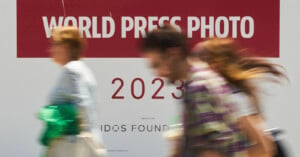
Hungary Fires Museum Director Over Photo Exhibit
A set of photos featured in the World Press Photo exhibition showing an LGBT community in the Philippines has claimed the job of a museum director in Hungary.

A set of photos featured in the World Press Photo exhibition showing an LGBT community in the Philippines has claimed the job of a museum director in Hungary.

Frustrated DALL-E 3 users are planning to stage an online protest over what they say are "absurd levels" of censorship.

Users of DALL-E 3 have been raging against Microsoft for the computer giant's heavy-handed censorship of the AI image generator.
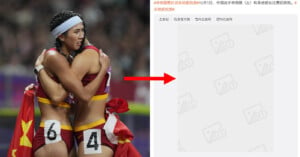
A seemingly innocuous photograph of two Chinese athletes embracing each other at the end of a race has been censored by authorities.

Journeying through misty mountains and deep forestry, photographer Erinthul takes refuge in capturing her dark and cryptic self-portraits that serve as an invitation into folklore and the arcane wildernesses of Poland.

As part of several initiatives being brought forward today, which is Safer Internet Day, Google will expand its SafeSearch settings in Google Image Search and will automatically blur explicit imagery even when SafeSearch isn't turned on.
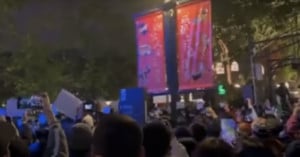
Chinese protestors angry with endless COVID restrictions have been flipping videos filmed on their phones and adding filters to avoid the government's online censors.

China has been accused of censoring maskless fans at the World Cup on state TV to maintain the illusion that the country's strict zero-COVID rules aren't dissimilar from the outside world.
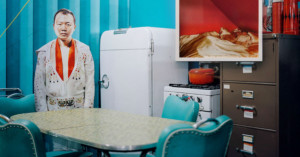
Memphis International Airport has issued an apology after abruptly removing and then reinstating photographer Tommy Kha’s self-portrait as an Elvis tribute artist.

A high school in Florida has sparked outrage after it was discovered that at least 80 female students had their photos digitally edited in the yearbook to hide their chests and shoulders.
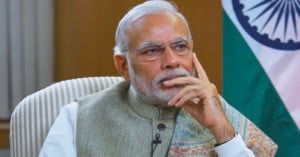
India is in the midst of what is being described as a "devastating" wave of Covid-19 cases across the country which caused a large influx of social media posts critical of the government's response. Hundreds of posts were ordered to be removed by India's government, which are now blocked in the country.
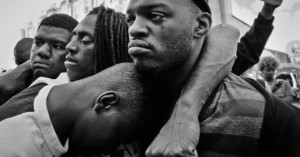
Editor’s note: Veteran photojournalist Yunghi Kim (@yunghi) sent me the following thoughts after the publication of my article about the ethics of showing protestors’ faces.
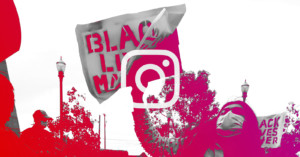
Instagram landed in hot water yesterday after some users discovered they were being blocked from posting anything with the hashtag #blacklivesmatter. In a statement on Twitter, the photo sharing site blamed its anti-spam system.
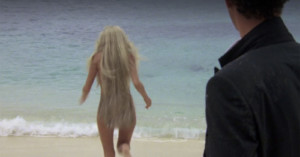
Disney is being roundly mocked on social media this week after it was discovered that they used some truly atrocious CGI to try and "cover up" Daryl Hannah's butt in the streaming version of the movie Splash on Disney+.
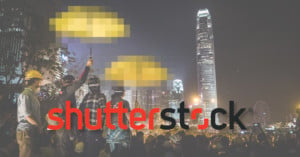
Stock photo giant Shutterstock has found itself in some ethical hot water. In a recording obtained by the media, an executive is heard dismissing employees' concerns about the censorship of search results in China, telling them that they are free "to pursue other opportunities" if they're unhappy with the company's decision.
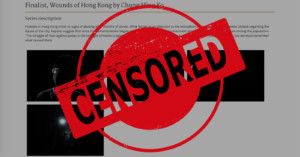
The Sony World Photography Awards is being accused of censorship by the photojournalist community this week after the renowned competition pulled down multiple photo series depicting the pro-Democracy protests in Hong Kong, blaming the photos' "sensitive nature."

Iranian music streaming website Melovaz is under fire today after it was discovered that, in accordance with the country's strict censorship policies, the site is forced to Photoshop out women out of album cover art. The policy means that women are being scrubbed—often very poorly—out of their own cover art, resulting in some very strange, almost comical album covers.
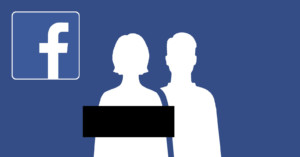
Facebook has agreed to rethink its stance on nudity following an outcry from photographers who have been protesting the social network's banning of artistic nudity in photographs.

Leica has sparked a huge backlash in China over a short film released by its ad agency in Brazil. The video (warning: strong language) depicts a news photographer covering the Chinese government's crackdown during pro-democracy protests in Beijing in 1989.
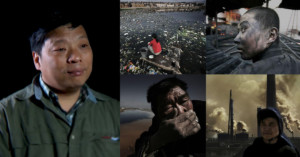
One of the most famous Chinese photojournalists has gone missing in China, and there are reports that he was arrested by government security officers.

A volunteer at a rally for President Donald Trump reached out his arm last night to block a photojournalist's camera as he tried to photograph a protester. Another photographer caught the move on camera, and today that photo-blocking volunteer has unintentionally become a viral news story.

I admit, the first time I saw these images I though they were fake. Someone probably added their clothes on as a joke. But when I realized the context and saw the source of the images, it made sense. The fact that the execution was bad made it hilarious.
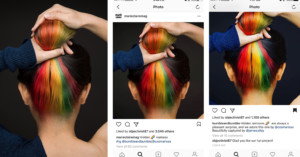
Yesterday I found out that one of my photos was misused, stolen if you ask me, by a major international company. Sadly this type of thing is so common that it’s almost not worth writing about. However, it’s what happened during my quest to call-out the company that really captured my attention.
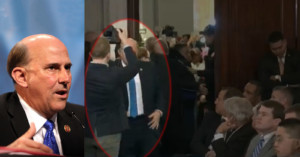
Texas Rep. Louie Gohmert is being accused of a very rudimentary style of censorship by photojournalist Jim Lo Scalzo. According to Lo Scalzo, Gohmert got up and physically blocked his view so that he couldn't photograph protesters during attorney general nominee Jeff Sessions’ confirmation hearings earlier this week.
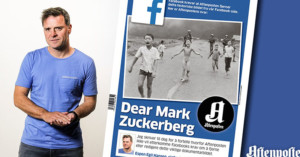
Facebook's rigid content restrictions and community standards are softening a bit today, and it's all because of Nick Ut and his Pulitzer Prize-winning photograph Terror of War, known by many as "Napalm Girl."
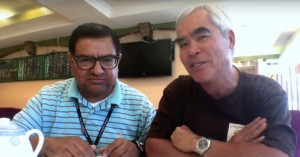
It seems like everybody has chimed in about the Facebook censorship controversy surrounding Pulitzer Prize-winning photographer Nick Ut's photo "Terror of War" ... except the photographer himself. Until now.
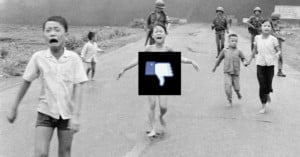
Facebook is being slammed by Norway's largest newspaper after the social network deleted a post showing the iconic Vietnam War 'Napalm Girl' photo because the shot contains nudity.

Image recognition is widely used to flag and remove offensive content from social media these days, but sometimes artificial intelligence isn't very intelligent. One Instagram user just found that out after she had her account disabled for posting a photo of a cake.

Back in June, we shared a series of photos by Joey L., who made a dangerous trip to Kurdistan to point his camera at the Kurdish guerrilla groups fighting in the Syrian civil war.
It turns out that many of the photos violate Instagram's policies, not because they show violence or graphic scenes, but because they show members of PKK, a group that's listed on "terrorist" lists. Joey L. isn't pleased with the policy.
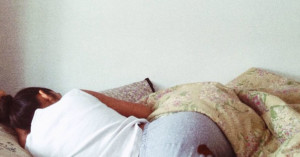
Instagram sparked controversy this week after deleting this photograph of a woman lying on a bed with menstruation blood seen on her clothing and on her sheets. She's now demanding to know why other more graphic or risqué photos are allowed on the service while images of a fully clothed woman on her period are not.

A portrait session that results in the death of the subject should be called a failure.
As reported by the Salt Lake Tribune, a group of photographers and onlookers experienced precisely that level of catastrophic botchery last week in Grand Teton National Park when crowding too close to a moose (not a good idea).
The moose, already agitated by the presence of a nearby bull moose, was scared by the approaching park-visitors and bolted before stumbling over a picnic table and landing on a fire grate. With its hoof caught in the grate, the half-ton animal collapsed and broke its leg so badly that park rangers were forced to put it down.
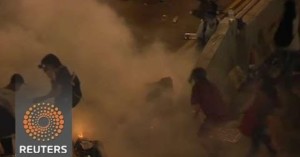
In the wake of the pro-democracy Occupy Central protests rocking Hong Kong, the Chinese government has tightened its already short censorship leash, adding photo sharing site Instagram to the list of sites now unusable in mainland China.
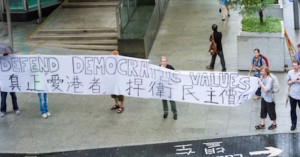
Recent reports claim that, in an effort to increase censorship, China has blocked Yahoo! photo sharing site Flickr alongside a number of other social media services. According to Greatfire.org, a group dedicated to keeping the Internet open for all, the site has been down since July 1st.
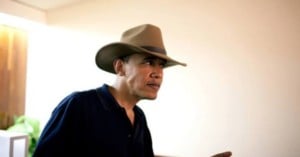
Since late 2013, the White House and the White House Press Corps have clashed several times over. We've covered this briefly in the past, but if you're still not sure what's going on, how it came to be and why exactly members of the press have gone so far as to call the administration's policies regarding press access "Orwellian," this exposé by ReasonTV may help clear things up for you.

#اینستاگرم فیلتر شد - #ایران #فیلترینگ #iran @ListenToUs @HassanRouhani pic.twitter.com/NnIDry4jsf— Soheil Gonzalez (@soheilr7) December 28, 2013
In most countries around the world, it's taken for granted that if you'd like to share a photo of your lunch or cat (even if, just maybe, you shouldn't) Instagram is ready and able to help you accomplish your goal. Of course, that's not true everywhere, as the people of Iran found out yesterday.
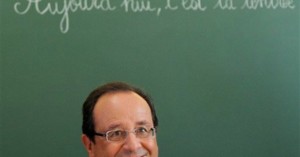
Agence France Presse is drawing fire from other journalists for withdrawing what one rival described as a "village idiot photo" of French President Francois Hollande.
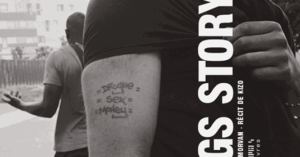
A French court has banned distribution of a photo book and fined the photographer, essentially for including a portrait the subject didn't like.

An Australian photographer has succeeded in having her work reinstated to a prominent exhibit, after authorities initially pulled the graphic image of a baby seconds after birth for being "too confronting."
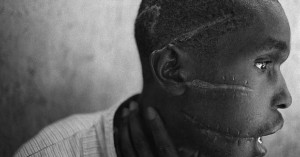
The Reportage Festival in Sydney, Australia is a well-known Vivid exhibition that displays the powerful work of some of the world's best photojournalists and documentary photographers. But this year, the New South Wales government has gotten involved by telling the curators what they can and cannot display, stirring up many photographers and anti-censorship advocates in the process.
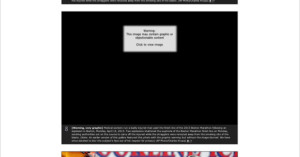
Before I begin with an observation of a photo that emerged from yesterday’s horrific bombings, I’d like to first take a moment to acknowledge the insignificance of my thoughts vis a vis the tragedy that has unfolded. There have been many great pieces that have already emerged in the first 24 hours like this one from Bruce Schneier of The Atlantic. That said, I blog about salient issues in photography, and there is no better time to discuss an issue than when it is in our collective consciousness.